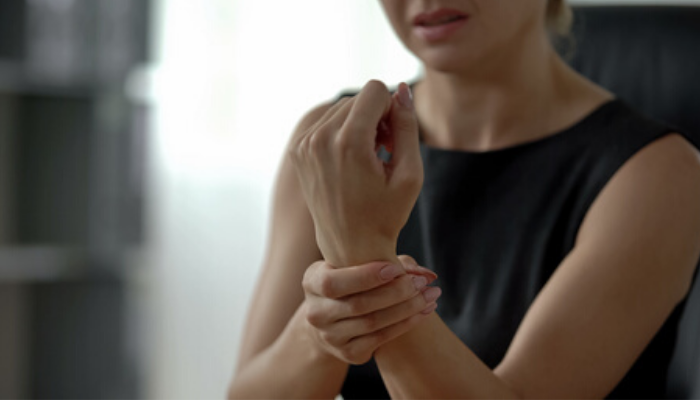
14 Dec Painful Hand and Wrist Conditions
Laura from Halo recently attended a lecture at the Nuffield Hospital in Warwick with Mr Shyamalan, a Consultant Hand, Wrist and Elbow surgeon.
The lecture was titled ‘Clinical Relevance of the Hand and Wrist- How to examine, treatment options and when to refer’
A variety of hand and wrist conditions were discussed including; carpal tunnel syndrome, Dupuytren’s disease, trigger finger, tendon trauma, mallet finger, tendonitis, Boutonniere deformity, arthritis and scaphoid fractures.
One condition discussed in the lecture was nerve injury in the upper limb. The 3 main nerves in the arm that supply the wrist and hand muscles are the median, radial and ulnar nerves.
These peripheral nerves can be damaged as a result of traumatic injuries including fractures, infections, overuse injuries, compression, or metabolic diseases such as Diabetes.
Nerve damage may cause pain, altered sensation and weakness in the muscles that are being supplied by the specific nerve.
Using the hand game ‘Rock, paper, scissors’ as an analogy to describe the hand positions facilitated by the muscles in the hand and wrist, we can identify the motor nerve functions of the 3 nerves. The median nerve supplies the flexor muscles of the forearm and hand and therefore enables the muscles to perform the ‘rock’ position. The radial nerve supplies the wrist and finger extensor muscles which perform the ‘paper’ movement. The ulnar nerve supplies the Interossei muscles of the hand which perform the ‘scissors’ position.
The anterior intersosseus nerve is a branch of the median nerve that supplies the flexor pollicus longus and the flexor digitorum profundus muscles. These muscles work together to facilitate the ‘ok sign’.
At Halo, we use our knowledge of these motor functions and treatment of peripheral neuropathies to formulate an effective treatment plan.
Treatments include patient education, range of movement exercises, neural mobilisations, soft tissue techniques and graded strengthening exercises. An initial consultation will offer an in-depth assessment enabling us to create an individualised treatment and plan for rehabilitation.



No Comments